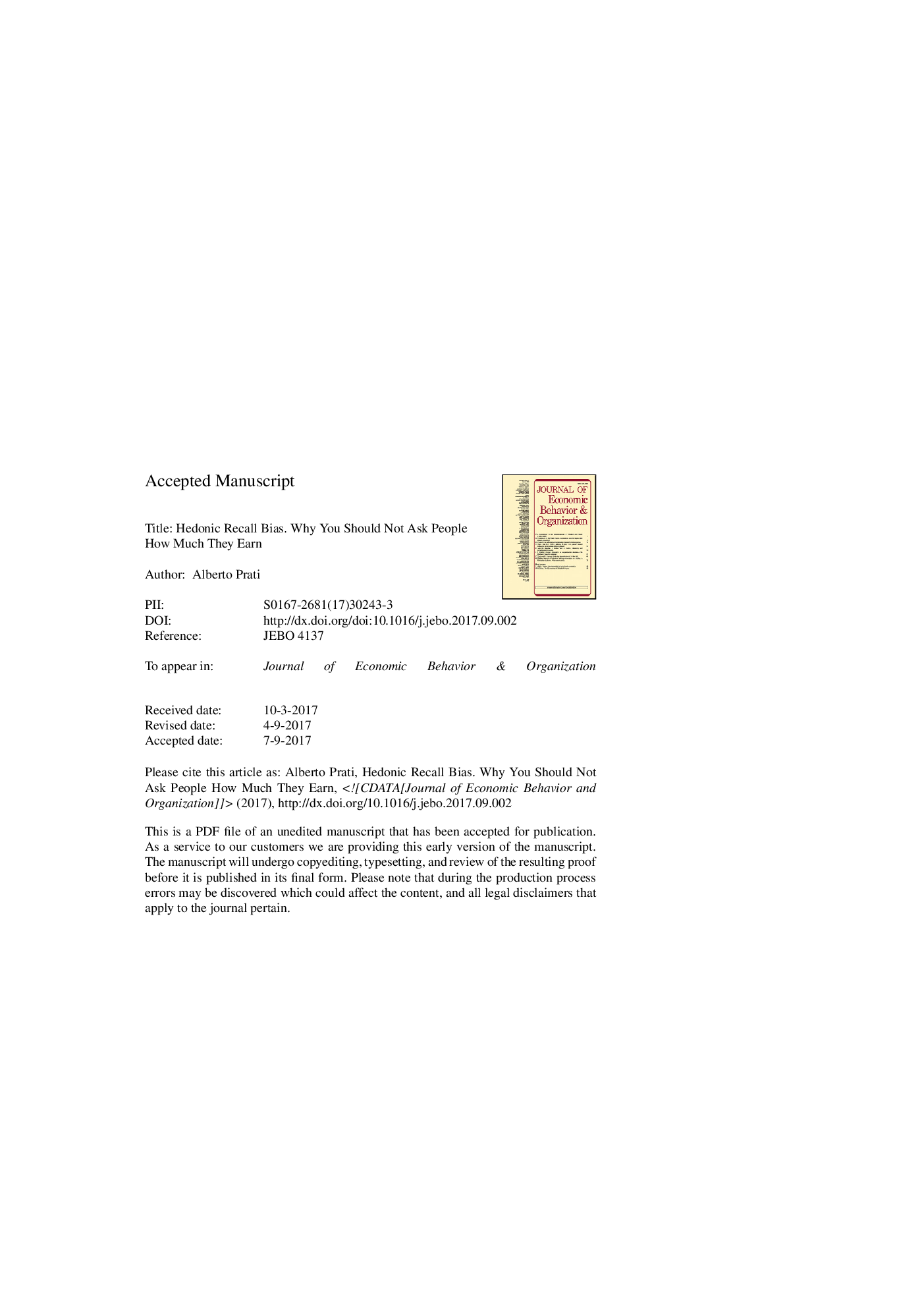| Article ID | Journal | Published Year | Pages | File Type |
|---|---|---|---|---|
| 5034414 | Journal of Economic Behavior & Organization | 2017 | 44 Pages |
Abstract
The empirical literature which explores the effect of wage on job satisfaction typically uses data drawn from social surveys. In these surveys, the amount of wage is reported by the respondents themselves: thus, the explanatory variable of the econometric models may differ from the true wage people earn. Our paper shows that the use of survey data can lead to considerable over-estimation of the importance of wage as a determinant of wage satisfaction. In particular, responses seem to be affected by a recall bias: people who are satisfied with their wage are more likely to over-report their wage in questionnaires. The more satisfied they are the more they over-report (and vice versa unsatisfied people). We name this behavioral disposition “hedonic recall bias”.
Related Topics
Social Sciences and Humanities
Economics, Econometrics and Finance
Economics and Econometrics
Authors
Alberto Prati,
